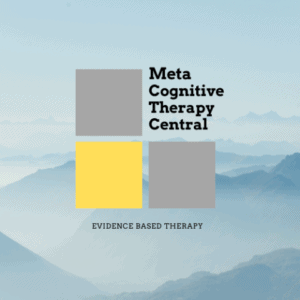
When symptoms of stress persist for more than one month after a traumatic event, patients who have experienced a traumatic event may fulfill the criteria for PTSD.
According to MCT theory, most people have an in-built capacity to adapt after traumatic experiences, but activating the CAS increases the risk of prolonged stress symptoms.
The CAS in PTSD consists of the following:
Rumination, which is past focused through asking oneself “why” questions)
Worry (asking “what-if” questions to anticipate and deal with danger)
Gap-filling which is going over events in memory to fill in gaps to answer questions about blame and responsibility of the traumatic event
Threat monitoring which is paying increased attention to potential danger
Avoiding situations and reminders of the traumatic event
Suppressing intrusive thoughts and memories of the traumatic event
Substance use to deal with symptoms and negative emotions
MCT focuses on reducing the CAS in patients with PTSD (however only if the stress symptoms have persisted over 1 month after the traumatic event) and challenges metacognitive beliefs about the importance of activating the CAS.
